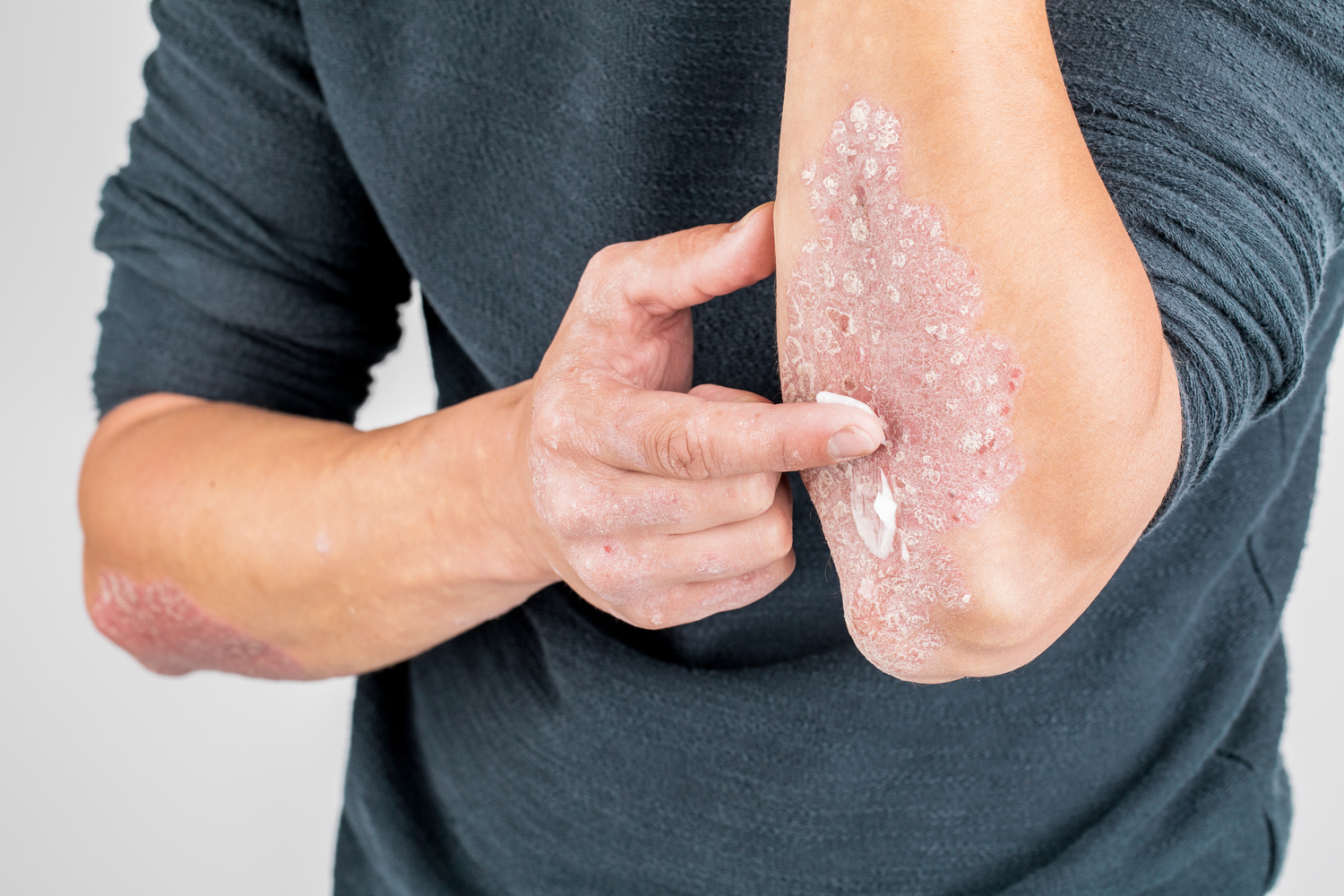
6 Health Conditions Linked to Psoriasis
Psoriasis is a chronic, inflammatory disease and the most common autoimmune disorder in which cells that line the skin build up too quickly. It causes red, scaly patches of skin. It often occurs on the knees, elbows, and scalp and heels. Patients with psoriasis may be more prone to developing certain health conditions. But the negative effects don’t end there. Psoriasis also increases your risk of developing type 2 diabetes and obesity, and the following conditions:
1. Lymphoma
Psoriasis may be a risk factor for developing this condition, but the exact link is unclear. The increased risk of lymphoma in people with psoriasis may be due to-related immune abnormalities. The inflammation associated with psoriasis may contribute to the development of this condition. It’s also possible that certain medications used to treat psoriasis may increase the risk.
2. Polycystic ovarian syndrome
Women with psoriasis have a higher risk of developing polycystic ovarian syndrome, or PCOS. PCOS is a metabolic disorder that can cause infertility, obesity, and an increased risk of certain types of cancer. A PubMed Central study from 2020 claims researchers aren’t sure what the link is between psoriasis and the development of PCOS, however, the reproductive abnormalities found in women with psoriasis are related to changes in the immune system.
3. Depression
Psoriasis has been linked to a higher risk of depression, a mental health condition in which an individual experiences feelings of deep sadness, loss of interest in daily activities, feelings of guilt, or feelings of hopelessness. A 2017 study conducted by social studies researchers from Warsaw, Poland found that patients with psoriasis experience higher rates of clinical depression, and suggest that it’s due to the social stigma associated with psoriasis and the chronic condition’s physical discomfort and emotional stress. However, depression treatment is available.
4. Heart disease
Psoriasis has been linked to increased levels of C-reactive protein (CRP), a marker of inflammation. Patients with psoriasis have higher cardiovascular disease, metabolic disorders, and diabetes rates. They also tend to smoke tobacco, have high blood pressure, and have a higher body mass index (BMI). These factors may explain the higher risk of the disorder in people with psoriasis. In 2009 research from the Cardiovascular Institute, University of Pennsylvania School of Medicine in Philadelphia, PA, found that psoriasis may cause heart disease by increasing inflammatory markers and blood pressure and increasing the risk of metabolic disorders and diabetes.
5. Psoriatic arthritis
Psoriasis and psoriatic arthritis often occur together, and people with psoriasis have a higher risk of developing it. However, it is not a direct result of having psoriasis. In some patients, it develops before the skin symptoms of psoriasis become apparent. The arthritis symptoms in people with this condition can vary widely. Some may only have mild joint pain, while others may have severe joint pain and damage leading to disability.
6. Chronic obstructive pulmonary disease (COPD)
People with psoriasis have a higher risk of developing the chronic obstructive pulmonary disease (or COPD). Psoriasis can make COPD worse, and some medications used to treat psoriasis can also make it worse. There is a link between psoriasis and COPD, but it’s unclear how psoriasis and COPD are related. It is known that psoriasis patients are more likely to have it and more likely to have more severe COPD than those without psoriasis. A 2020 published in teh U.S. National Library of Medicine suggest that psoriasis patients are likely to smoke tobacco as a form of treatment for their psoriasis, and psoriasis patients are more likely to be obese since psoriasis is known to be linked to a higher risk of type 2 diabetes.
Psoriasis is a chronic inflammatory disease that affects millions of people around the world. Psoriasis can be painful and itchy, and it can be challenging to treat. Your doctor may recommend specific lifestyle changes and medications to treat your psoriasis.


